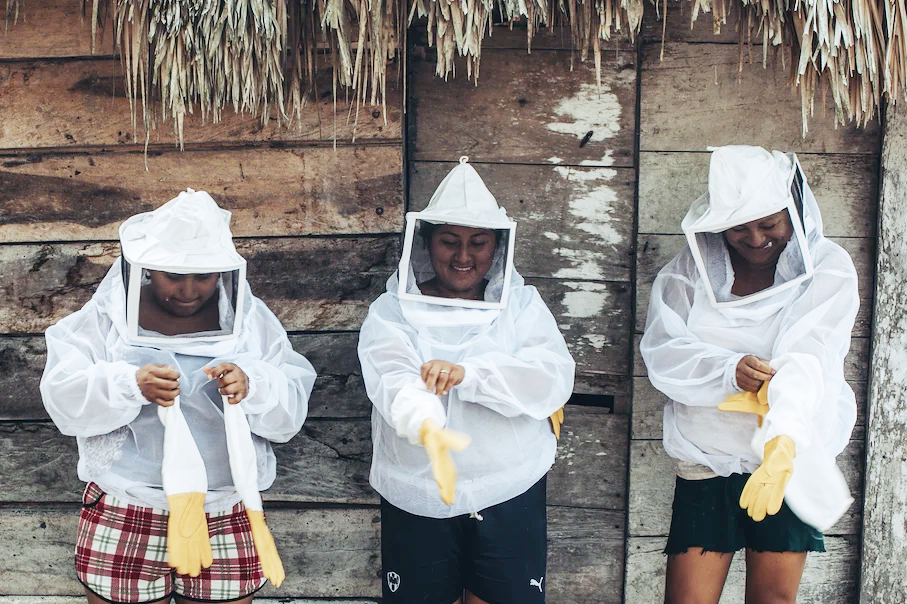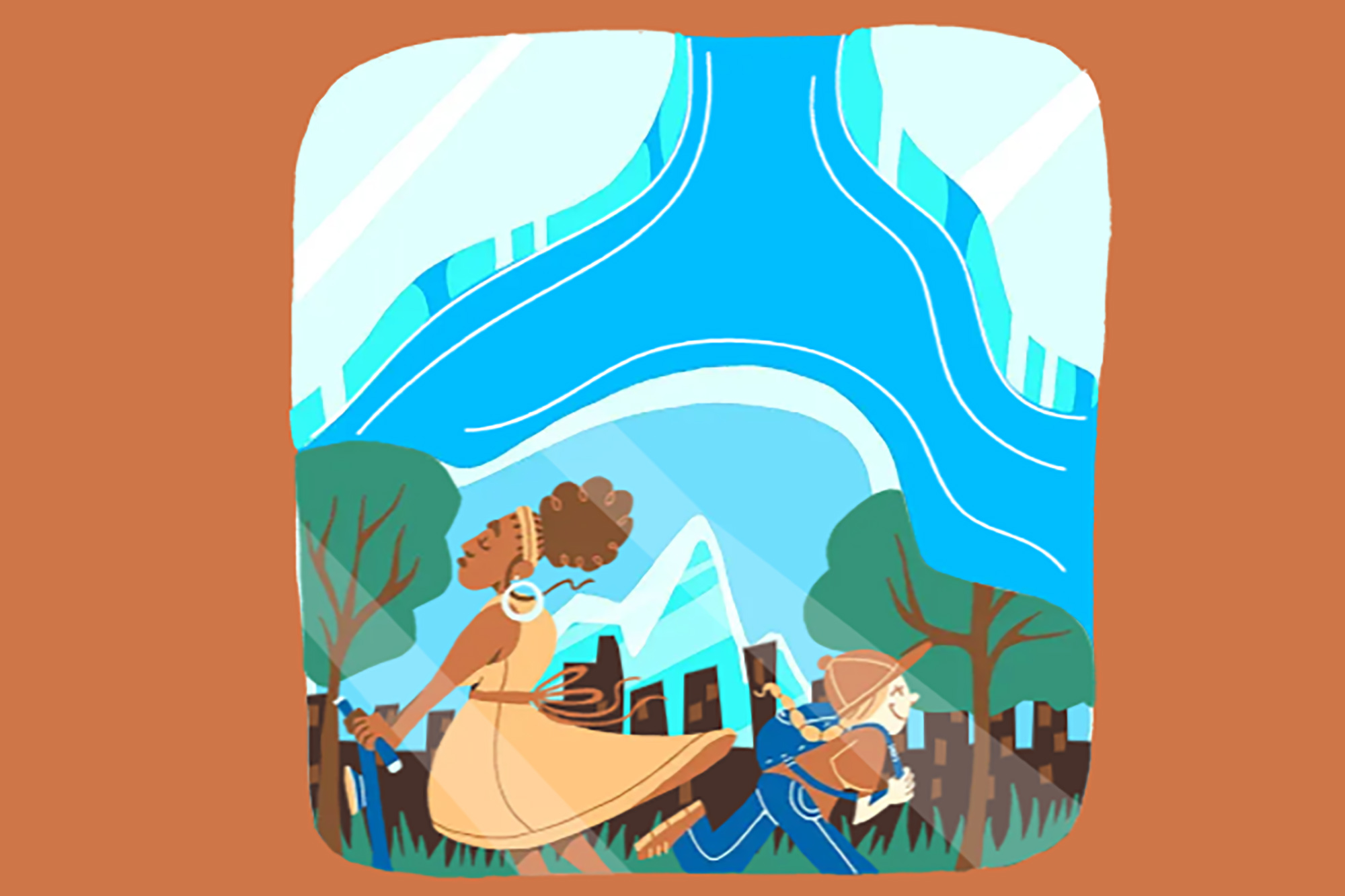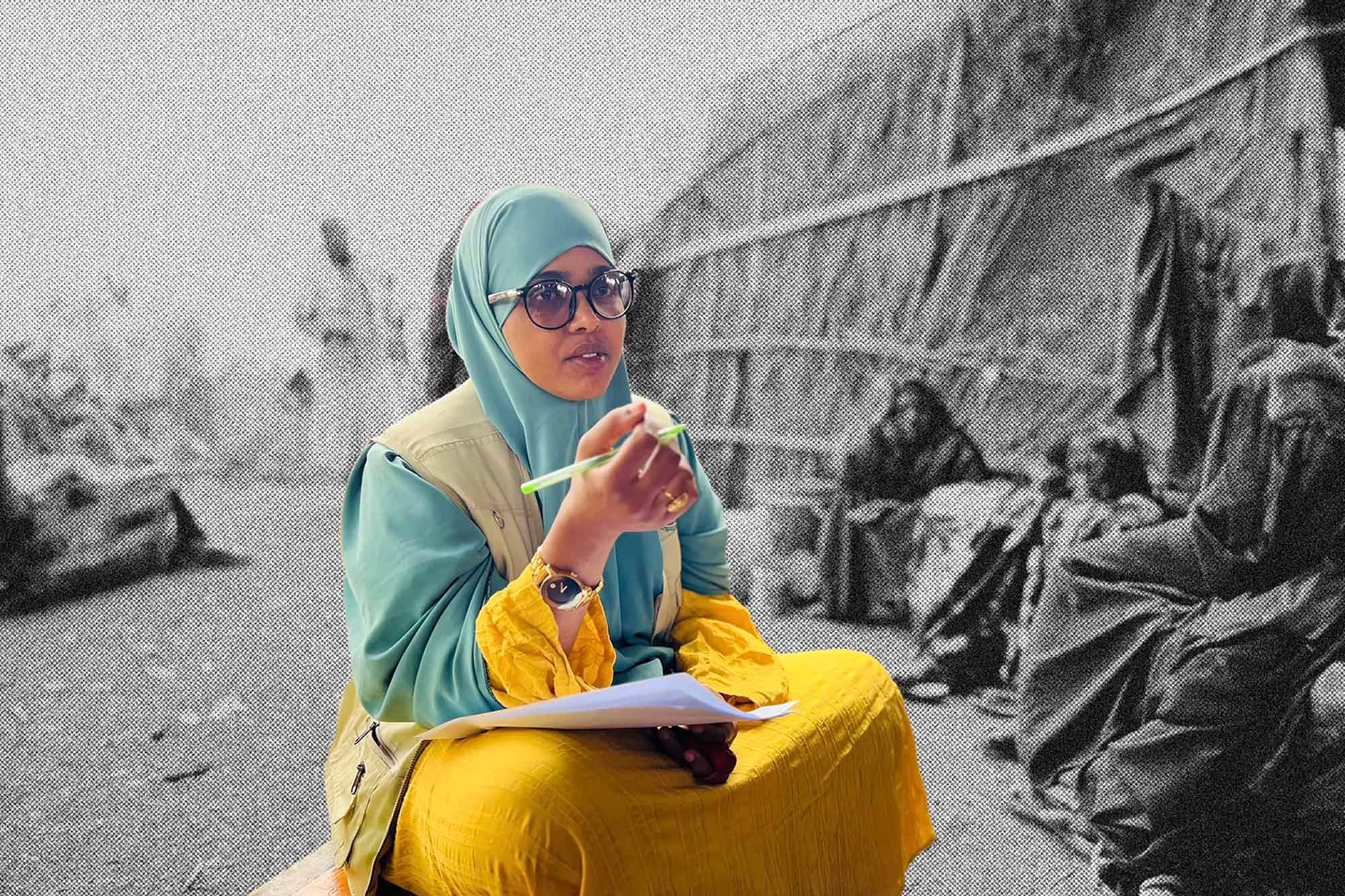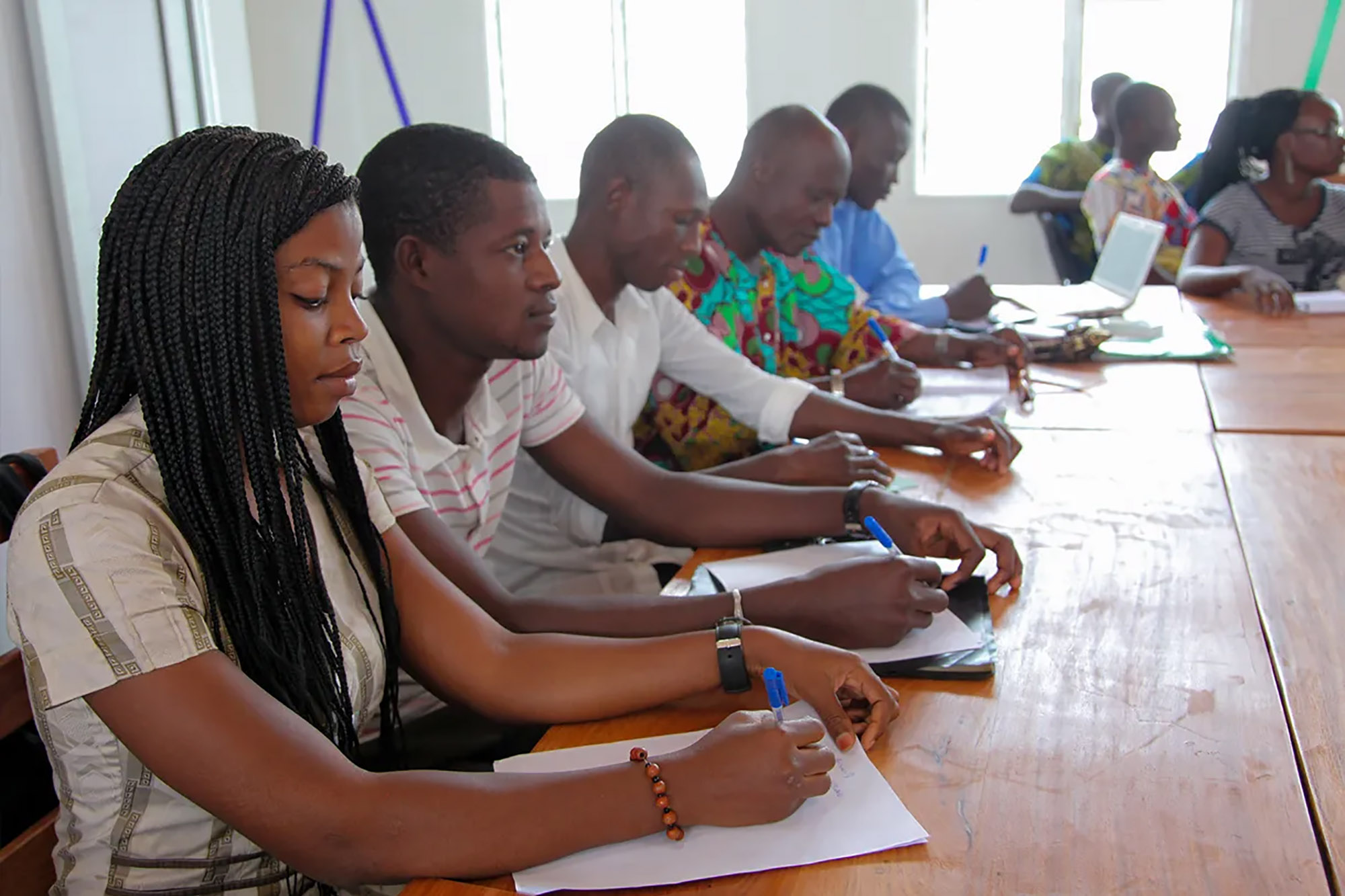Diego, Hilda, Juan, and their son Hugo are farmers in Comandante Andresito, Argentina, where together they face the same challenge, living alongside jaguars, known as 'yaguareté' in the region. These large felines, significant in indigenous culture, have seen their population decline by 50% since the 19th century, largely due to habitat loss and conflict with livestock farmers. In Argentina, the situation is even more dire. It’s estimated that 95 percent of the jaguar's original habitat has been lost. To alleviate these issues, a protection insurance program was introduced, providing farmers with financial compensation and technical support following confirmed jaguar attacks.
UNDP
On October 24, 2024, history was made in the serene hills of Kurumugl village, nestled in the Gembogl District of Simbu Province (Papua New Guinea). The Kulkane Tribe formalized their commitment to preserving the country's natural heritage by signing a Conservation Deed, pledging 9,000 hectares of pristine tropical and montane rainforest to conservation. This milestone event marked the culmination of the first phase of the Global Environment Facility (GEF) project pilot site at Mt. Wilhelm, a significant initiative aimed at reducing the funding gap for the country’s Protected Areas Network. The project is to protect biodiversity while ensuring sustainable livelihoods for local communities. The Kulkane Tribe’s commitment extends the boundaries of the Mt. Wilhelm Protected Area, safeguarding critical biodiversity hotspots.
In Yucatan, women are transforming beekeeping into a powerful tool for environmental conservation, financial independence, and community sisterhood through the ancient practice of meliponiculture.
National Adaptation Plans (NAPs) help countries incorporate climate adaptation into their existing policies and programs, particularly in key sectors like agriculture and water. By proactive planning, governments can reduce risks and enhance climate resilience. NAPs also facilitate access to climate finance and promote collaboration across different societal levels to implement adaptation measures, such as improved water management and resilient infrastructure. NAPs are especially vital for the 1.2 billion people already facing severe climate hazards, particularly in Least Developed Countries (LDCs) and Small Island Developing States (SIDS), which are highly vulnerable to climate impacts.
United Nations Development Programme’s new report shows that with the right choices, AI can help tackle inequality and global challenges—turning today’s uncertainty into tomorrow’s opportunity.
Glaciers, which hold around 70% of the Earth's fresh water, are vital for regulating climate, sustaining ecosystems, and supporting nearly 2 billion people who rely on glacier meltwater. Found on every continent except Australia, they have deep cultural significance for Indigenous Peoples. However, glaciers are rapidly shrinking due to climate change, causing disruptions in the water cycle, altering river currents, and increasing competition for resources. As glaciers melt, they contribute to sea-level rise and fuel extreme weather events. The release of toxins from thawing permafrost further threatens water quality. Despite these challenges, we can act by combining scientific and Indigenous knowledge to protect glaciers, improve land-use practices, and engage local communities to ensure their preservation.
In 1988, Tram Chim National Park in the Dong Thap province of Viet Nam was home to a stunning sunset view featuring over 1,000 sarus cranes, the world’s tallest flying bird and a symbol of Dong Thap's natural and cultural heritage. However, due to the loss of key plant species, these cranes have not been seen in nearly 40 years, with none returning by 2022. The Biodiversity and Ecosystem Services Network (BES-Net), a UNDP flagship initiative supported by the German Government, is working with the Vietnamese Government to address this issue. They are implementing a strategy to restore wetland habitats and support local communities in Tram Chim, aiming to reduce ecosystem pressures and encourage the return of the cranes.
At 4,000 metres above sea level and surrounded by mountains and vast meadows, the women of the Sumac Vicuñitas Artisans Association of Umpuco-Palca, are part of a long tradition that Andean communities have developed since pre-Inca times: the domestication and breeding of alpacas, a species of South American camelid mammal related to the llama. In this tradition, women have played a crucial role in preserving ancestral knowledge and promoting local economies through the production of alpaca wool fibres for yarns and weaving.Today, a sustainable value chain in the Peruvian department of Puno allows them to transform alpaca fibres into competitive products replete with added value, opening the way for Quechua women to have better opportunities from the sustainable use of agrobiodiversity.
The 2023/24 Human Development Report calls for rethinking global institutions to make them more people-centered, inclusive, and future-oriented in response to the convergence of political, ecological, social, and economic crises.
Forests are vital for biodiversity, climate regulation, and agriculture. They help maintain soil fertility, regulate water cycles, and support biodiversity, which are essential for productive farming. Sustainable practices like agroforestry and crop rotation can reduce deforestation and land degradation. However, the growing demand for food can lead to unsustainable farming practices that harm forests. This interdependence underscores the importance of balancing forest conservation, food production, and ecosystem health for long-term sustainability. Addressing these connections is key to combating climate change, ensuring food security, and protecting forests. Innovative projects can help maintain this balance. On the occasion of the International Day of Forests (21 March) here are three examples of how food products and forests intersect to promote sustainable land use and community benefits worldwide.
It’s been 30 years since the Beijing Declaration and Platform for Action established a global roadmap for advancing the rights of women and girls. Despite some progress, economic inequalities remain deeply entrenched in societies, exacerbating issues like domestic violence. Insufficient social protections, such as paid parental leave and childcare, along with higher tax rates for female earners, negatively impact women’s lives. The UNDP's Gender Equality Seal for Public Institutions is a voluntary program in over 100 institutions across 30 countries, aimed at enhancing policy reforms to better address the diverse needs of women.
It will take an estimated 137 years to end extreme poverty for women and 257 years to close the pay gap between women and men. But what if we choose not to wait? In 2025, the world can choose to invest in gender equality so all of society benefits. Instead of waiting centuries, let’s choose to do it now.
Early warning systems mitigate climate risks, saving lives and minimizing losses, but challenges like funding, data gaps, and communication persist.
Angelbert Johnny, a 47-year-old from the Wapichan territory in Guyana, has been involved in environmental conservation for over 20 years after noticing a decline in local wildlife. He joined a group of friends to found the South Rupununi Conservation Society (SRCS) to protect the endangered Red Siskin bird. Initially a ranger, Angelbert later managed a new project focusing on conserving the giant armadillo and giant anteater in three South Rupununi communities. Launched in late 2023, the project aims to integrate traditional knowledge with scientific research to reverse the decline of these species. SRCS plans to establish community conservation agreements and create up to 120,000 hectares of Community Conservation Zones to be recognized on the ICCA Registry.
The United Nations Security Council estimates that a quarter of the world's population, or 2 billion people, live in conflict-affected areas. Delving deeper, the UNDP Multidimensional Poverty Index found that nearly 40 percent of multidimensionally poor people live in countries exposed to violent conflict. These figures crystalize what we know intuitively: conflict drives people and countries into poverty or keeps them there. Right now, violent conflict is at its highest level since the United Nations was founded 80 years ago. To strengthen a global culture of peace and improve the lives of people everywhere, UN Member States have declared 2025 the International Year of Peace and Trust. The General Assembly Resolution calls on the international community to redouble efforts to prevent and resolve conflicts through dialogue and diplomacy.














